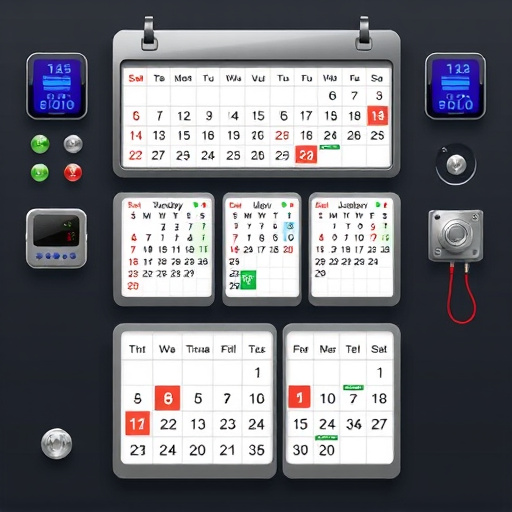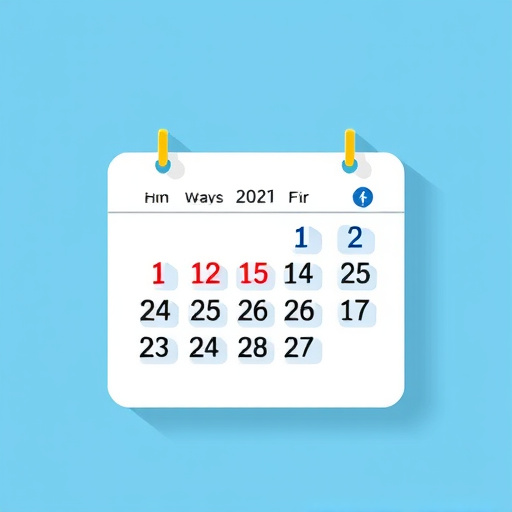Automated scheduling for Registered Training Organisations (RTOs) significantly improves operational efficiency and customer experience by eliminating manual, error-prone processes. Leveraging AI and NLP, these systems enable real-time availability checks, instant confirmations, predictive analytics, and remote accessibility. Benefits include streamlined operations, reduced administrative burdens, minimized human errors, and optimized resource allocation, fostering a more personalized learner experience in today's digital era. RTOs should invest in user-friendly software integrating with existing learner management systems for holistic appointment management.
Automate RTO Appointment Scheduling for optimal efficiency. In today’s competitive landscape, Registered Training Organisations (RTOs) face significant challenges with manual appointment scheduling—from time-consuming administration to limited visibility and potential errors. This article explores the benefits of implementing automated systems, highlighting key features and technologies driving innovation in RTO scheduling software. We also provide strategic insights for a seamless transition, empowering RTOs to enhance student experiences and operational effectiveness.
- Understanding the Challenges of Manual Scheduling for RTOs
- Benefits of Implementing Automated Appointment Systems
- Key Features and Technologies in Automated RTO Scheduling Software
- Strategies for Seamless Transition to Automated RTO Appointment Scheduling
Understanding the Challenges of Manual Scheduling for RTOs

Manual scheduling for Registered Training Organisations (RTOs) presents several challenges that can impact efficiency and accuracy. Without automation, RTO administrators often rely on manual processes to coordinate training sessions, which is time-consuming and prone to human error. Each appointment requires individual consideration, from checking availability of trainers and resources to managing student schedules and ensuring compliance with regulatory requirements. This labyrinthine process not only slows down operations but also leaves room for mistakes that could lead to missed opportunities or non-compliance issues.
In today’s fast-paced environment, where RTOs compete for students and resources, efficient scheduling is crucial. Manual methods can’t keep up with the demand, leading to inefficiencies and a suboptimal experience for both staff and students. Automated scheduling systems offer a game-changer solution, promising enhanced control, improved accuracy, and streamlined operations for RTOs.
Benefits of Implementing Automated Appointment Systems

Implementing automated appointment systems for Registered Training Organisations (RTOs) brings a multitude of benefits that significantly enhance operational efficiency and customer experience. By automating RTO appointment scheduling, organisations can reduce administrative burdens, minimising human error and maximising resource allocation. This technology allows for real-time availability checks, instant booking confirmations, and automated reminders, streamlining the process from initial enquiry to finalisation.
Moreover, automation offers scalability and flexibility, accommodating fluctuating demand and specialised training needs. It enables RTOs to provide a more personalised service by tailoring appointment slots according to individual preferences, ensuring optimal utilisation of resources without overbooking or underutilising facilities. This not only improves internal processes but also fosters a positive impression among clients, contributing to better customer satisfaction and loyalty.
Key Features and Technologies in Automated RTO Scheduling Software

In today’s digital era, Automated scheduling for Registered Training Organisations (RTOs) has emerged as a game-changer, revolutionizing the traditional manual appointment processes. This innovative technology streamlines the complex task of managing training sessions and ensuring optimal attendance, resulting in enhanced efficiency and improved learner experiences. Key features of these advanced systems include intelligent calendar management, where software can automatically allocate time slots based on course demand, instructor availability, and participant schedules, avoiding double-bookings and conflicts.
The underlying technologies behind these automated tools are robust and varied. Artificial Intelligence (AI) plays a pivotal role in predictive analytics, enabling the software to forecast attendance trends and optimize scheduling accordingly. Natural Language Processing (NLP) facilitates seamless communication with participants, sending reminders, and handling rescheduling requests through voice or text commands. Additionally, cloud-based platforms ensure accessibility from anywhere, allowing RTOs to manage schedules remotely and provide real-time updates, ensuring a smooth and efficient administrative process.
Strategies for Seamless Transition to Automated RTO Appointment Scheduling

The transition to automated RTO appointment scheduling offers a smooth and efficient solution for managing training sessions. Firstly, Registered Training Organisations (RTOs) should invest in user-friendly software designed specifically for this purpose. Such tools streamline the process by allowing administrators to create, edit, and cancel appointments effortlessly, while also providing learners with real-time availability updates. This digital approach eliminates manual data entry, reducing errors and saving time.
Additionally, integrating automated scheduling with existing learner management systems can provide a comprehensive view of student progress and availability. This ensures that appointment slots are allocated optimally, catering to individual schedules and learning preferences. By adopting these strategies, RTOs can ensure a seamless shift towards automated scheduling, enhancing overall operational efficiency.
Automate RTO appointment scheduling to streamline operations, enhance efficiency, and improve student experiences. By implementing automated systems, Registered Training Organisations can save time, reduce manual errors, and gain valuable insights into booking trends. Key features like intelligent calendar management, real-time availability updates, and seamless online booking empower organisations to provide a modern, user-friendly experience for students. With the right strategies in place, the transition to automated scheduling is achievable and offers significant long-term benefits.
